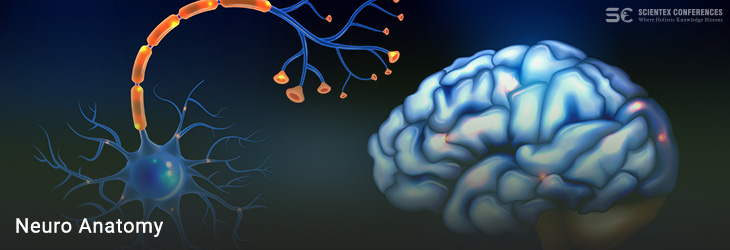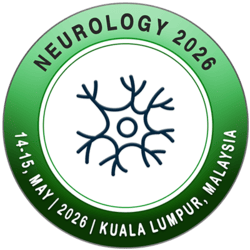Track: Neuro Anatomy

Session Overview:
Explore the forefront of neuroanatomy at the "Neuro Anatomy" session of the Neurology 2025. This session will provide a comprehensive examination of the latest advancements in understanding the complex structures of the nervous system. Attendees will engage with cutting-edge research on high-resolution neuroimaging techniques, which are unveiling new dimensions of brain anatomy and connectivity. Discussions will cover recent discoveries in neuroplasticity and their impact on recovery from neurological injuries. The session will also address updated insights into neuroanatomical changes associated with conditions like Alzheimer's disease and multiple sclerosis. By integrating the latest findings with practical applications, this session aims to enhance clinical approaches and foster a deeper understanding of the neural basis of neurological and mental health disorders.
Recent Developments:
Recent developments in neuroanatomy are transforming our understanding of the brain. High-resolution neuroimaging techniques, such as advanced MRI and PET scans, now provide unparalleled detail of brain structures and connectivity. The field of connectomics is making strides with new methods for brain mapping, revealing intricate patterns of connectivity. Innovations in neuroplasticity research are showing how the brain reorganizes itself after injury or learning, leading to novel rehabilitation strategies. Additionally, genetic and molecular studies are uncovering how genetic variations impact brain structure and function, offering new insights into neurological and psychiatric disorders. Artificial intelligence is also playing a pivotal role, helping analyze complex imaging data and develop personalized treatment plans. Together, these advancements are reshaping diagnostic approaches, therapeutic interventions, and our overall understanding of brain function and development.
Sub-Tracks:
Cortical Anatomy
Focuses on the structure and function of the cerebral cortex, including the organization of cortical areas and their roles in sensory processing, motor control, and higher cognitive functions.
Subcortical Structures
Examines brain regions located beneath the cerebral cortex, such as the thalamus, basal ganglia, and hippocampus, and their involvement in motor control, memory, and emotion regulation.
Neurodevelopment
Studies the developmental processes that shape brain structure from embryonic stages through adulthood, including the formation of neural circuits and the impact of genetic and environmental factors on brain development.
Functional Neuroanatomy
Investigates how specific brain regions and networks contribute to various cognitive and behavioral functions, using techniques like functional MRI (fMRI) to map brain activity during different tasks.
Neurovascular Anatomy
Explores the brain's vascular system, including the distribution of blood vessels and how blood flow affects brain function, with implications for understanding stroke and other vascular disorders.
Neuroimmunology
The study of the interactions between the nervous system and the immune system, including how immune responses can impact neuroanatomical structures.
Neuroendocrinology
Exploration of the relationship between the nervous system and endocrine glands, focusing on how hormonal signals affect neuroanatomical function and structure.
Neurogenetics
Examination of the genetic factors influencing neuroanatomical development and variations, including genetic disorders that impact brain structure and function.
Neuroplasticity
The study of how neuroanatomical structures adapt and reorganize in response to learning, injury, or disease, emphasizing brain plasticity mechanisms.
Neurotoxicology
The investigation of how toxic substances affect neuroanatomical structures, including the impact of environmental and chemical agents on brain health and development.
Scientific Highlights
- Neurology
- Neuro Anatomy
- Mental Health and Psychiatry
- Geriatric Neurological Disorders
- Neuromuscular Diseases
- Brain Tumor and Neuro-oncology
- Cerebrovascular and Critical Care Neurology
- Clinical Neurophysiology
- Central Nervous System
- Neuro-Ophthalmology
- Pediatric Neurology
- Neuroimaging and Brain Mapping
- Neurogenetics and Neurodegenerative Disease
- Behavioral and Cognitive Neuroscience
- Neurochemistry and Neuropharmacology
- Spinal Neurosurgery and Neural Transplantation
- Neuro Robotics and Neuro Modulators
- Addiction and Adult Psychology
- Brain Stimulation and Computational Neuroscience
- Neural Control of Micturition
- Parkinson's Disease


